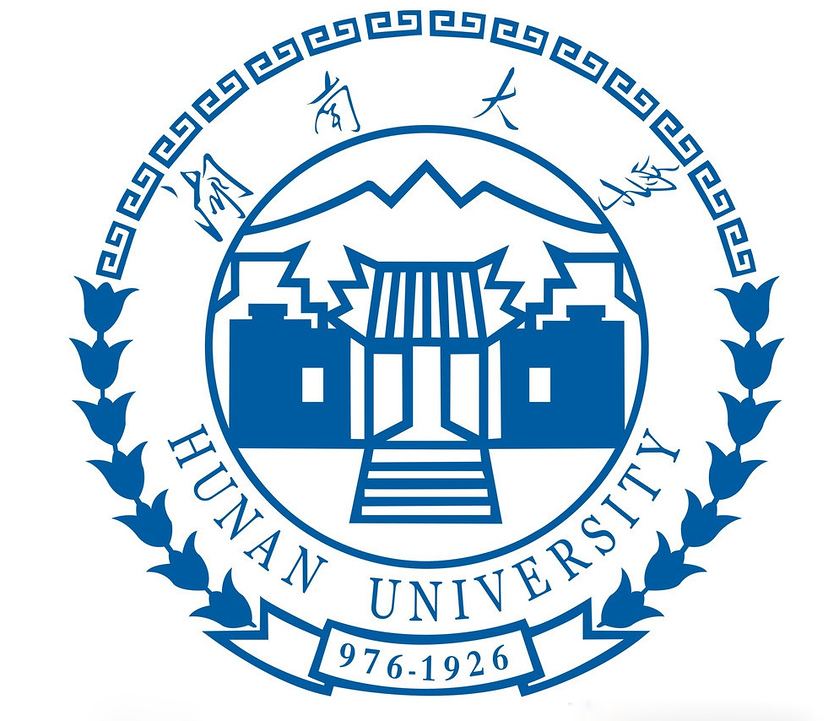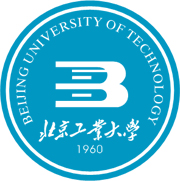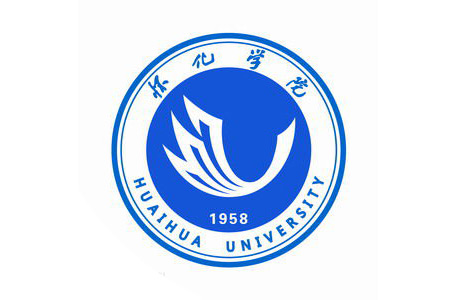Important Dates
Paper submission due:
Sep.30,2021
Notification of acceptance:
Oct.31,2021
Registration:
Nov.7,2021
Conference Date:
Oct. 21-23, 2022
Social Media
Workshop
+ 查看更多
Workshop Chair
organizer
Prof. Buwen
Cao
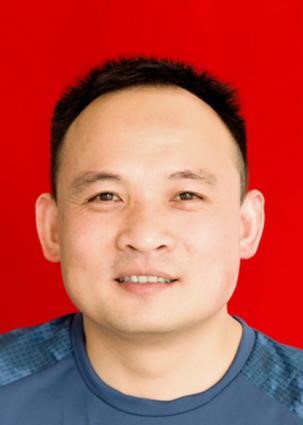
Received a Ph.D. degree
in Computer science and
technologyfrom Hunan
University, Changsha,
China, in 2016. He is
currently an associate
professor of College of
Information and
Electronic engineering,
Hunan City University.He
has published about 20
researchpapers in
various international
journals and proceedings
of conferences. His
research interests
include Data mining and
bioinformatics.
Prof.
Zhufang Kuang
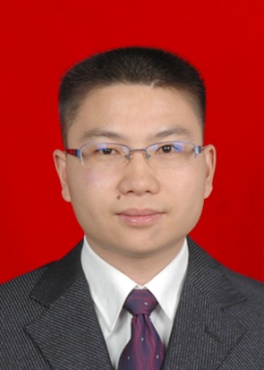
Zhufang Kuang , Ph.D. in
Engineering, Postdoctor,
Professor of Central
South University of
Forestry and Technology
(CSFUT). From 2015 to
2016, he was a Visiting
Scholar/Professor with
the University of
Victoria, Victoria, BC,
Canada. He is executive
director of Hunan
Computer Society,
director of Hunan
Artificial Intelligence
Society, director of
Hunan Internet of things
Society, Senior Member
of China Computer
Federation (CCF), Member
of CCF Internet of
Things Special
Committee, Member of CCF
Network and Data
Communication Special
Committee, Member of CCF
Computer Application
Special Committee,
Member of IEEE, Member
of ACM, Vice Chairman of
CCF YOCSEF Changsha
2018-2020, director of
Forestry Computer Branch
of China Forestry
Society. He is in charge
of the new generation
communication network
and big data research
center of CSUFT. His
current research
interests include
wireless communications
and networking, mobile
edge computing,
artificial intelligence.
Prof.
Aibin Chen
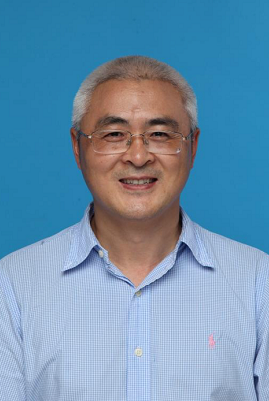
He is the third-level
professor of Central
South University of
Forestry and Technology,
assistant dean of the
School of Computer and
Information Engineering,
the secretary-general
and the legal
representative of the
Hunan Artificial
Intelligence
Association, a senior
member of the Chinese
Artificial Intelligence
Association, a standing
committee member of the
Education Working
Committee of the Chinese
Artificial Intelligence
Association, a senior
member of China Computer
Federation, a standing
member of the Computer
Application Professional
Committee of China
Computer Federation, a
member of the Mechanics
Metrology Professional
Committee of China
Metrology and Testing
Association, and a
member of the Computer
Education Professional
Committee of Hunan
Higher Education
Association. He once
presided over one
National 948 Technology
Introduction Project, 2
Hunan Science and
Technology Projects,
associate presided over
1 National Basic
Research Project,
participated in 2
National Natural Science
Foundation Projects, and
1 National 863
Sub-project, and he
published more than 30
papers. He is the
associate editor of "A
Dictionary of Artificial
Intelligence". His
research focused on the
areas of image
processing, pattern
recognition, intelligent
systems, ecological
artificial intelligence
applications, forestry
information
engineering.editor of “A
Dictionary of Artificial
Intelligence”. His
research focused on the
areas of image
processing, pattern
recognition, intelligent
systems, ecological
artificial intelligence
applications, forestry
information engineering.
Title
:
Multi-agent Deep ReinforcementLearning in Games
Summary:
By combining deep
learning and
reinforcement learning
techniques, deep
reinforcement learning
(deep RL) achieves big
successes in a lot of
complex decision-making
tasks, particularly in
games, such as Atari
games, the game of Go,
and even StarCraft II. A
deep RL agent learns
like people do, taking
in high-dimensional raw
data, such as image and
sensor input, and
refining its predictions
and decisions through
trial and error.
Recently, multi-agent
systems attract great
attention because of a
wide range of potential
applications, and they
also bring a lot of
interesting problems and
great challenges, such
as distributed learning
problem and
communication problem
among the agents.
Another interesting
problem is how to
understand the behavior
of the deep RL agents
and improve their
interpretability.
The aim of this workshop is to bring together the research accomplishments provided by researchers from academia and the industry. The other goal is to show the latest research results in related field of deep learning, reinforcement learning, multi-agent systems, and distributed learning. We encourage prospective authors to submit related research papers about theoretical approaches or practical case studies. Please name the title of the submission email with “paper title_workshp title”. The scope of this workshop includes, but is not limited to the following topics:
• Deep learning
• Reinforcement learning
• Reward structures for learning
• Multi-agent learning
• Distributed learning systems
• Collective intelligence
• Practical algorithms for games
• Behavioral models of games
• Interpretability of deep RL
• Applications
The aim of this workshop is to bring together the research accomplishments provided by researchers from academia and the industry. The other goal is to show the latest research results in related field of deep learning, reinforcement learning, multi-agent systems, and distributed learning. We encourage prospective authors to submit related research papers about theoretical approaches or practical case studies. Please name the title of the submission email with “paper title_workshp title”. The scope of this workshop includes, but is not limited to the following topics:
• Deep learning
• Reinforcement learning
• Reward structures for learning
• Multi-agent learning
• Distributed learning systems
• Collective intelligence
• Practical algorithms for games
• Behavioral models of games
• Interpretability of deep RL
• Applications
Keywords:
Deep Learning, Reinforcement Learning, Mulit-agent, Game Theory
Chair
:
Pro.
Long Han
,
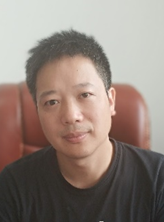
received the Ph.D.
degree in Construction
Engineering from Tongji
University, in 2014. He
was a Postdoctoral
Researcher in Applied
Mathematics. He was a
visiting scholar at
Warwick University. He
is currently an
Associate Professor of
College of Liberal Arts
and Sciences at National
University of Defense
Technology. He has
published two books and
eight SCI/EI articles.
He has been a director
or a member in 10
national grants and
projects. He has
received the First Prize
of Military Science and
Technology Progress
Award in 2013. His
current research
interests include
reinforcement learning,
multi-agent system, and
game theory.
Title
:
Practical Big Data and Artificial Intelligence
Summary:
Practical Big Data and
Artificial Intelligence
have become an
ubiquitous
cross-industry term to
describe vast amounts of
large data sets that are
challenging to store,
search, share,
visualize, analyze, and
learn to get their
intelligence. Effective
usage of the Big Data
and Artificial
Intelligence would bring
great benefits and
unique opportunities to
the users. However,
there are still many
open issues for deep
investigation. The
Practical Big Data
Workshop in ICCBDAI 2020
is to promote the
research in this
emerging area of Big
Data and Artificial
Intelligence-intensive
Research, Development,
Computing, Algorithms,
Systems, and
Applications. The
Practical Big Data and
Artificial Intelligence
workshop in ICCBDAI
2020, aims to bring
together builders and
users of practical big
data and artificial
intelligence systems to
share research results,
experiences and new
ideas. It solicits
high-quality papers that
illustrate novel Big
Data and Artificial
Intelligence models,
architecture and
infrastructure,
management, search and
processing, security and
privacy, applications,
surveys and industrial
experiences.
Keywords:
Practical Big
Data,Practical
Artificial
Intelligence,Big Data
and Artificial
Intelligence
Applications,
Cross-domain Big Data
and Artificial
Intelligence System
Chair
:
Prof.
Guang Sun
,
School of Hunan University of Finance and Economics
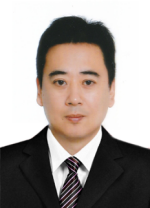
He received his PhD in
Computer Science from
Hunan University, CHN,
in 2012. He is currently
a Professor working for
the Institute of Big
Data at Hunan University
of Finance and
Economics, Changsha,
HUNAN, CHN. He was a
visiting scholar at the
University of Alabama.
His research interests
fall under the umbrella
of practical big data
and artificial
intelligence, sensor
networks security,
information hiding (with
a focus on software
watermarking and
software birth marking).
His research has
partially or fully
supported by National
Natural Science
Foundation of China.
Title
:
Data Mining and big data Analysis
Summary:
Big data analysis is to
use appropriate
statistical analysis
methods to analyze the
large-scale data
collected, which is a
process of detailed
research and
generalization of data
to extract useful
information and form
conclusions. “Data
mining”, its English
meaning can be
understood as data
exploration and data
mining. Data mining
refers to the process of
using relevant
algorithms to explore
the hidden information
from a large number of
data. It seems that the
meaning of big data
analysis is somewhat
similar to it. But in
comparison, data mining
involves a wider range
of knowledge and
requires higher
requirements. Because
data mining will involve
many algorithms, such as
neural network and
decision tree, support
vector machine based on
statistical theory,
classification and
regression tree,
association analysis and
so on.
Keywords:
Analytic Visualizations,Data Mining Algorithms,Predictive Analytic Capabilities
Chairs
:
Dr.
Bingxiang Liu
,
School of Jingdezhen
Ceramic
University
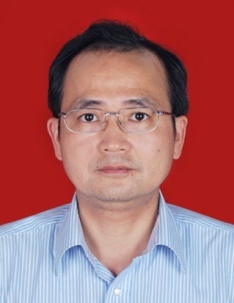
He was born in January
1966 in Jiujiang,
Jiangxi Province. He is
a doctor, a professor, a
master's supervisor, and
the Secretary of the
General Party branch of
the school of
information engineering
of Jingdezhen Ceramic
University, the young
and middle-aged
discipline leader of
Jiangxi colleges and
universities, and the
famous teacher of
Jiangxi Province.
He has been selected
into the talent project
of Jiangxi Province in
the new century. He is
the Director of national
computer simulation
society, the director of
National Computer
Education Association,
Jiangxi Computer
Society, Jiangxi
Automation Society, and
Jiangxi Computer User
Association.
Title
:
Artificial
intelligence, big
data and intelligent
agriculture,
intelligent
logistics
Summary:
development of
artificial intelligence,
big data and other
new-generation
information technology,
agricultural development
has entered a new stage,
which takes information
knowledge as the core,
and deeply applies
modern information
technologies such as the
Internet of Things, big
data, cloud computing
and artificial
intelligence, as well as
intelligent equipment
and intelligent robots,
to the whole industrial
chain of agriculture al
production, processing,
operation,
transportation,
management and service.
Precision planting,
internet-based
marketing, intelligent
decision-making and
social services will be
realized, and a modern
agricultural development
pattern featuring
digitalization,
automation, precision
and intelligence will be
formed. At the same
time, artificial
intelligence and big
data also ensure the
industry of intelligent
logistics, providing
basic guarantee for
people's happy life.
The purpose of this workshop is to bring together the research findings of researchers from academia and industry to display the latest research achievements of artificial intelligence and big data in intelligent agriculture, intelligent logistics and other fields. And we will discuss how AI can serve these industries better in the future. Authors are welcome to submit relevant topics for outstanding research papers, including theoretical approaches and practical case reviews. Please name the subject of your submission as "Paper Title - Workshop Title".
The purpose of this workshop is to bring together the research findings of researchers from academia and industry to display the latest research achievements of artificial intelligence and big data in intelligent agriculture, intelligent logistics and other fields. And we will discuss how AI can serve these industries better in the future. Authors are welcome to submit relevant topics for outstanding research papers, including theoretical approaches and practical case reviews. Please name the subject of your submission as "Paper Title - Workshop Title".
Keywords:
Artificial intelligence,
Big Data, intelligent
agriculture, intelligent
logistics
Chair
:
Prof.
Jiamin Wang
,
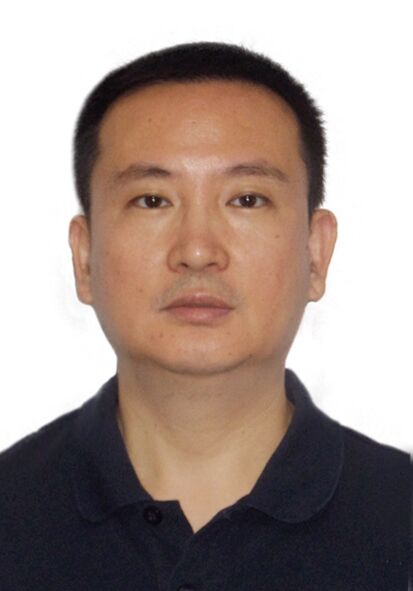
Jiamin Wang received his
PhD in Mechanical
Engineering and
Automation from Shandong
University in June 2016.
Since July 1999, he has
been working on the
front line of teaching
and researching, mainly
focusing on artificial
intelligence,
intelligent agriculture,
cold chain logistics,
etc.
His main achievements
include: has presided
over 1 national 863
Program project, 1
provincial major special
project, and 1
provincial talent
innovation project; has
participated in 2
provincial-level major
projects, 1
provincial-level
enterprise major
innovation project and 5
provincial-level key
livelihood projects as
the technical leader;
participated in 3
projects of national
science and technology
support plan, and the
total amount of projects
and engineering funds
involved was nearly 130
million Yuan. He has
published 17 papers,
which include one SCI
paper, 5 EI papers, and
2 textbooks; won two
second prizes of
national teaching
achievements and one
second prize and the
third prize of Excellent
Scientific Research
Achievements of Shandong
Colleges and
Universities; has 2
invention patents, 5
utility model patents
and 5 Cold Chain
Traceability Software
Copyrights in the field
of cold chain logistics.
Title
:
Machine learning and smart agriculture
Summary:
Nowadays,
artificial intelligence has become a hot topic, and artificial
intelligence has also provided strong technical support for the
development of modern agriculture. It is very necessary for the research
of machine learning algorithms in the field of smart agriculture.
The purpose of this workshop is to bring together the research results of academic and industry researchers, introduce the relevant research results of machine learning technology in the field of smart agriculture, and provide a platform for participants to communicate, mainly focusing on machine learning technology in the quality of agricultural products Safety inspection, agricultural robots, agricultural products cold chain logistics, agricultural products production and breeding, etc. Authors are encouraged to submit research papers on theoretical methods and practical applications, and the title of the submitted paper submission email should be named "Paper Title-Seminar Title".
The purpose of this workshop is to bring together the research results of academic and industry researchers, introduce the relevant research results of machine learning technology in the field of smart agriculture, and provide a platform for participants to communicate, mainly focusing on machine learning technology in the quality of agricultural products Safety inspection, agricultural robots, agricultural products cold chain logistics, agricultural products production and breeding, etc. Authors are encouraged to submit research papers on theoretical methods and practical applications, and the title of the submitted paper submission email should be named "Paper Title-Seminar Title".
Keywords:
Artificial intelligence,machine learning, smart agriculture, robotics
Chair
:
Prof.
Leian Liu
,
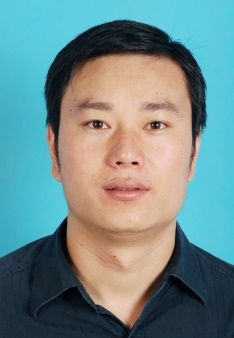
Leian Liu, graduated from South
China University of Technology in 2007 with a doctorate in engineering,
director of the Guangdong Institute of Electronics, deputy director of
the Mobile Internet Special Committee of the Guangdong Computer Society,
director of the Guangzhou Computer Society, and currently the deputy
dean of the School of Information Science and Technology, Zhongkai
University of Agricultural Engineering. At present, he is mainly engaged
in research in related fields such as Internet of Things technology, big
data technology, artificial intelligence, and has presided over or
participated as a backbone member in many national, provincial and
municipal scientific research projects, and published many scientific
research papers. As the editor-in-chief and deputy editor-in-chief, he
has compiled textbooks such as "Computer Network", "Network Security
Principles and Applications", "Network and Information Security", and
won the first and second prizes of Guangdong Education and Teaching
Achievement Award.
Prof.
Yang Ling
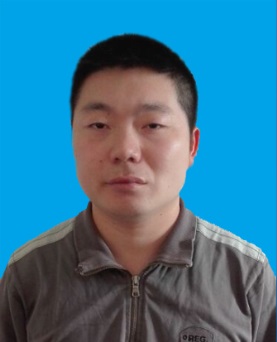
Professor and Master tutor. He graduated from Sun Yat-sen University in
2009 with his Master's degree. Now, he is the vice president of the
School of Information Science and Technology of Zhong Kai Agricultural
Engineering College, the expert of the Innovation Team of Guangdong
Province Agricultural and Rural Big Data and Precision Agriculture
Common Key Technology Research and Development, the director of
Guangdong Food Quality and Safety Traceability and Control Engineering
Technology Research Center, Director of Guangdong Modern Agriculture
(Agricultural Internet of Things and Agricultural Product Quality and
Safety) Industrial Technology Research and Development Center, and the
commissioner of Enterprise Science and Technology. He presided over 8
above provincial and municipal projects, participated in 5 projects in
the second position. As the first author, he published 23 papers,
including 4 in SCI, 3 in EI, 10 in Chinese core journals. He owns 3
authorized invention patents, 8 software copyrights, one second prize of
Guangdong Science and Technology, 1 first prize of Guangdong Education
and Teaching, and 1 second prize of School-level Teaching Achievement.
His research and development results have been applied to enterprises.
His research interests: Agricultural artificial intelligence,
agricultural Internet of Things, food safety traceability technology,
etc
Title
:
Smart IoT Sensing
Summary:
The Internet of
Things (IoT) is the latest Internet evolution that incorporates billions
of Internet-connected devices that range from cameras, sensors, RFIDs,
smart phones, and wearables, to smart meters, vehicles, medication
pills, signs and industrial machines. Such IoT things are often owned by
different organizations and people who are deploying and using them for
their own purposes. Federations of such IoT devices (referred to as IoT
things) can also deliver timely and accurate information that is needed
to solve internet-scale problems that have been too difficult to tackle
before.
To realize its enormous potential, IoT must provide IoT solutions for
discovering needed IoT devices, collecting and integrating their data,
and distilling the high value information each application needs. Such
IoT solutions must be capable of filtering, aggregating, correlating,
and contextualizing IoT information in real-time, on the move, in the
edge and the cloud, and securely and must be capable of introducing
data-driven changes to the physical world.
Keywords:
IoT,IoT solutions
Chair
:
Prof.
Li Xiaolong
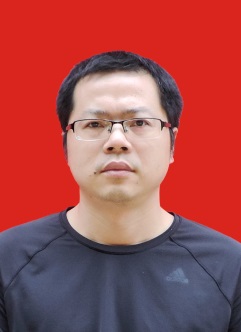
He is a member of the China
Democratic National Construction Association, the deputy dean of the
School of Computer and Information Engineering, Hunan Technology and
Business University, a head of the first-class undergraduate
professional construction site in Hunan Province "Computer Science and
Technology", the young scholar in Furong, Hunan Province. Now he is
self-employed. He has presided over 3 National Natural Science
Foundation projects on Internet of Thing and 7 provincial and
departmental projects. He served as the member of TPC and the branch
chairman of VTC 2012-FALL and CHINACOM, as well as TVT, PPNA, IEEE
COMMUNICATION LETTER, International Journal Reviewer of international
journals such as Distributed Sensor Networks and IET Wireless Sensor
Systems.
Title
:
Artificial Intelligence Algorithms and Applications in the Context of 5G and Big Data
Summary:
Artificial
Intelligence has been widely used in Intelligent Finance, Smart
Retailing, Intelligent Manufacturing and in the area of education,
enterprise service, medical industry, etc. In the coming 5G era, faster
real-time communication powers the big data transferring and processing.
Efficiently combining Big Data and Artificial Intelligence in the
context of 5G would bring great benefits and more opportunities to users
and enterprises. However, there are many open issues and challenges for
practical usage.
The aim of this workshop is to promote researches in this emerging area
of combining Big Data and Artificial Intelligence in the context of 5G
and solve practical problems for industrial usage. Authors are
encouraged to submit research papers on algorithms and applications in
Artificial Intelligence on the background of Big Data and 5G. The title
of the submitted paper submission email should be named “Paper Title-
Workshop Title”.
Keywords:
Artificial Intelligence, Big Data, 5G, Industrial Application
Chair
:
Peiguang LIN
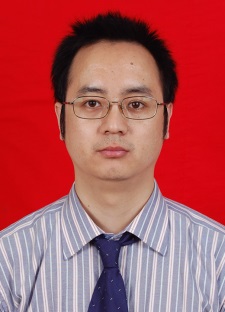
Peiguang LIN was born in Yantai, Shandong, China in 1978. He received
the Master Degree in Computer Application from China University of
Geoscience in 2003, and the Ph.D degree in Information Retrieval from
Beijing Institute of Technology in 2006.
Now, he is an associate professor and master tutor at the Shandong
University of Finance and Economics. At the same time, he is also a
member of the China Computer Federation, a member of the CCF-AI, and a
member of the Machine Learning Committee of the Chinese Association for
Artificial Intelligence.
At present, his main research interests are machine learning and
information retrieval. He has presided over two projects of the Ministry
of Education, one Natural Science Foundation of Shandong, one
independent innovation project of colleges and universities, and one
major project of Higher Education Reform Research Project of Shandong.
At the same time, he participated in two projects of National Natural
Science Foundation of China, three projects of Ministry of Education and
two projects of Natural Science Foundation of Shandong. In addition, he
has published more than 50 academic papers, 30 of which are included by
SCI and EI. He has published 1 academic monograph and 4 teaching
materials. Finally, he obtained 1 patent authorization, 2 software
Copyrights, and won the second prize of Undergraduate Teaching Reform
Research Achievement Award of Shandong.
Qiang LI
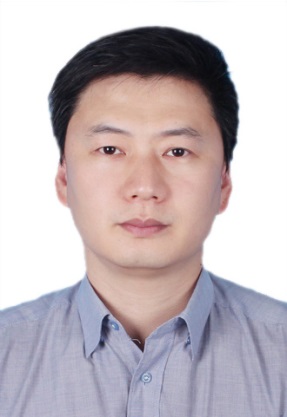
Qiang LI, male, Han nationality, born in January 1975, party member of
The Revolutionary Committee Of The Chinese Kuomintang, master of
software engineering, Shandong University, senior economist and senior
engineer. He is now the Secretary General of Shandong Electronic Chamber
of Commerce (Professional Position).
Engaged in electronic information industry for more than 20 years,
participated in the construction and implementation of BeeLink, Shandong
e-commerce integrated service platform, Shandong e-commerce payment
platform, Shandong welfare lottery online agent purchase service
platform, Shandong mobile informationize integrated service platform,
Mobile application middleware system, Shanghai World Expo official
website, Telecom operator collaborative office system, "in Shandong"
e-commerce platform and other national and provincial information
platforms.He organized and implemented Shandong e-commerce conference,
Shandong Internet of things conference, national mobile phone
after-sales service conference, national mobile phone maintenance and
debugging skills competition, China (Jinan) International Information
Technology Expo and other key activities, and participated in the
research and projects in the fields of integration of informationize and
industrialization, e-commerce, third-party payment, Internet of things,
cloud computing, big data, mobile Internet, smart city, information
security, consumer electronics and other fields.He presided over and
participated in the formulation of multinomial information technology
related industry standards, local standards and group standards, wrote a
number of papers published in national grade professional journals. He
served as the off campus cooperative tutor of Shandong University of
Finance and economics, Shandong Normal University, University of Jinan
and other colleges and universities, and won the excellent achievement
award of computer application in Shandong Province for many times. He
was awarded the May 1st Labor Medal of Shandong national defense
machinery and electronic industry.
Title
:
Algorithms and Applications of AI
Summary:
Artificial
intelligence technology
can make a computer
think like a human. The
AI defined by Alan
Turing is: the science
that enables computers
to complete tasks that
require human
intelligence. Artificial
intelligence has the
ability of perception,
understanding and
decision-making. Data,
algorithms, and
computing power are the
three elements of
artificial intelligence,
and learning ability is
its essence. Artificial
intelligence algorithms
include decision trees,
random forests, logistic
regression, SVM, Naive
Bayes, k-Nearest
Neighbor, k-means,
Artificial Neural
Networks, Markov, etc.
Artificial intelligence
has been widely used in
the fields of knowledge
representation and
reasoning, automatic
programming, machine
learning, natural
language processing and
robot vision. This
special Workshop aims to
introduce and discuss
the improved algorithms
of artificial
intelligence and the
application of
artificial
intelligence.
Keywords:
Deep
learning; Knowledge
Representation; Neural
Network; Algorithms;
Image
segmentation
Chair
:
Prof.
Xuedou Yu
,
School of Information
Management
,
Dezhou
University.
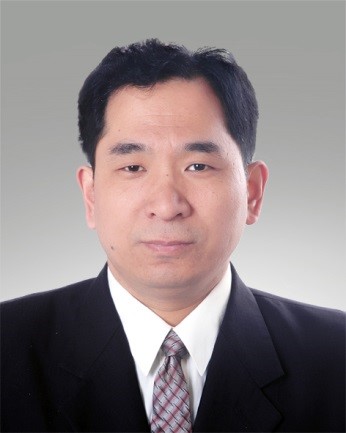
Xuedou
Yu (August 1973), male,
master, associate
professor.In 1998, he
graduated from Shandong
Normal University with a
bachelor of science
degree in computer
science and education.In
2007, he graduated from
Shandong University of
Science and Technology,
majoring in computer
software and theory,
with a master's degree
in
engineering.Currently,
he is the deputy dean of
the school of
information management,
dezhou university.In
2018, he was selected as
a member of the poverty
alleviation team
dispatched to villages
in the province.
In
recent years, he has
presided over one
project of provincial
natural science
foundation, participated
in many projects of
national natural science
foundation and
provincial level,
written more than 30
papers, participated in
the compilation of 5
textbooks, guided
students to publish more
than 10 papers, and
guided students to win 6
national scientific and
technological innovation
awards and many
provincial and
ministerial
awards.Designed 6 sets
of management software
for enterprises and
institutions.
Prof
.
Zhou Lianbing
,
Dean
of the Artificial
Intelligence College of
Dongying Vocational
Institute
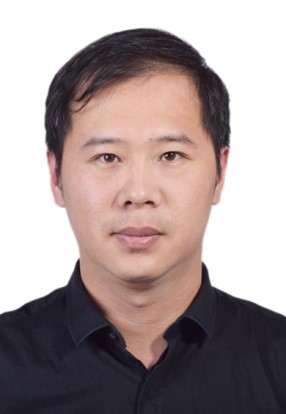
Zhou
Lianbing, Master,
Associate Professor,
Dean of the Artificial
Intelligence College of
Dongying Vocational
Institute, Yellow River
Delta Scholar
Distinguished
Expert,Famous Teacher of
Shandong Province, Young
and Middle-aged Experts
with Outstanding
Contributions in
Shandong Province,
National Model Teacher,
Won the Outstanding
Teacher Award of
Huangyanpei Vocational
Education Award and was
appointed as Shandong
Smart Home Association
Deputy Director of
Industry-Education
Integration Professional
Committee, Secretary
General of Artificial
Intelligence Vocational
Education Committee of
Shandong Association for
Artificial
Intelligence.
Dr.
Guihua
Liu, Weifang Medical
College,China
,
China.
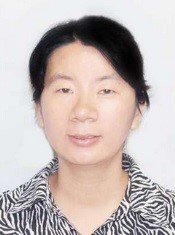
Guihua
Liu received the Master
of computer software and
theory from Shandong
Normal University ,in
2007,Shandong,China.She
is currently a Lecturer
at Weifang Medical
College.Her research
interests include Deep
Learning, Knowledge
Representation and
Medical Image
Segmentation.
Title
:
Security Big Data
and Governance for
Cyberspace
Summary:
Current Cyberspace are
increasingly becoming
pervasive, complex, and
ever-evolving due to
factors like enormous
growth in the number of
network users,
continuous appearance of
network applications,
increasing amount of
data transferred, and
diversity of user
behaviors. Understanding
traffic and behaviors in
such networks is a
difficult yet vital task
for network management
but recently also for
cybersecurity purposes.
Security big data
analysis can, for
example, enable the
analysis of the
spreading of malicious
software and its
capabilities or can help
to understand the nature
of various network
threats including those
that exploit users’
behavior and other
user’s sensitive
information. On the
other hand cyberspace
governance can help to
assess the effectiveness
of the existing
countermeasures or
contribute to building
new, better ones.
Recently, cyber security
big data analysis have
been utilized in the
area of economics of
cybersecurity e.g. to
assess ISP “badness” or
to estimate the revenue
of cybercriminals.
The aim of this workshop
is to bring together the
research accomplishments
provided by researchers
from academia and the
industry. The other goal
is to show the latest
research results in the
field of cybersecurity
technology and
understand how
governancestrategy can
influence it. We
encourage prospective
authors to submit
related distinguished
research papers on the
subject of both:
theoretical approaches
and practical case
reviews. Please name the
title of the submission
email with “paper
title_workshp title”.
Keywords:
Cybersecurity,
Cyberspace Governance,
Security Big
Data,Artificial
intelligence,International
Strategy for Cyberspace
Chair
:
Dr.
Liu
Ming
,
Beihang
University.
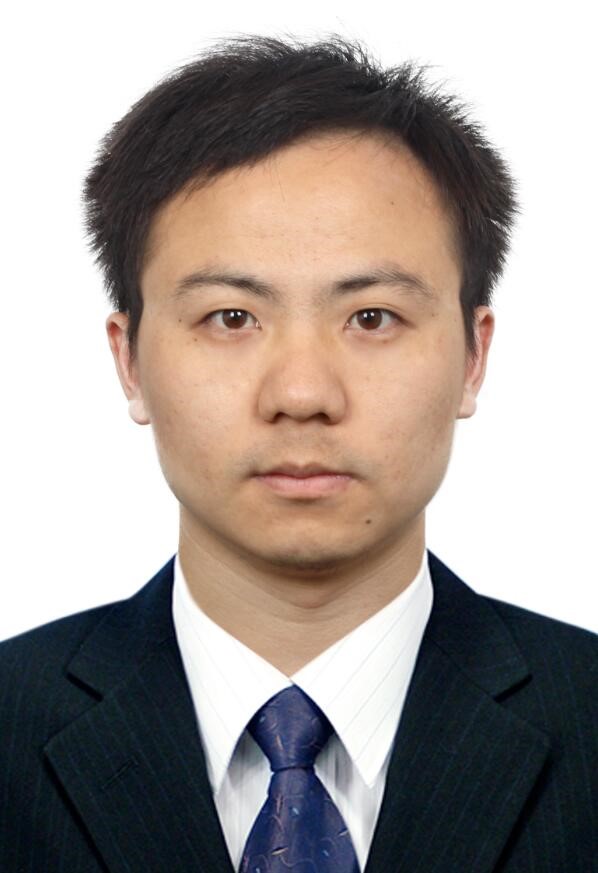
He received a Ph.D.
degree in Computing
Science from Beihang
University, He worked as
a member at the State
Key Laboratory of
Software Development
Environment. His
research interests
includeSecurity Big
Data, Text Mining, and
RepresentationLearning.
He participated in the
National Natural Science
Foundation,National 242
Information Security
Project, the Basic
Research Project of
Military Commission of
Science and Technology,
the National Key
Research and Development
Project, and the
Core-electronics,
High-end-general-Chips,
and
Infrastructural-software(CHI)
National Major Project,
etc.
He has published IEEE
Transactions on
Cybernetics, KBS, APWEB,
WAIM conference and
journal papers. The
papers have been cited
hundreds of times. He
received a number of
awards including the
grants of APWEB and WAIM
2018.He also serves as
the reviewer for many
referred venues
including
Scientometrics, KAIS,
and KSEM, etc.
Dr.
Hongyue Yuan
,
Zhengzhou University.
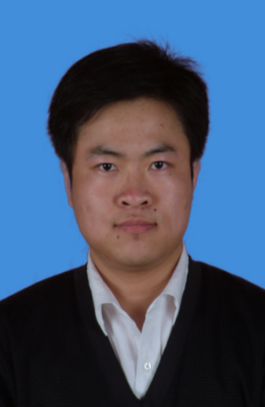
He received a Ph.D.
degree in Materials
Processing Engineering
from Zhengzhou
University, joint
training of doctoral
students of University
of Wisconsin-Madison. He
worked as a member at
the State Key Laboratory
of Materials Processing
and Mold. His research
interests include
Internet Security,
Software Engineering and
Numerical Simulation.
He participated in the
National Natural Science
Foundation, National Key
Projects, National Key
Research and Development
Project, Natural Science
Foundation of Henan
Province, Tackling Key
Scientific and
Technological Problems
in Henan Province. Based
on these projects, he
published many academic
papers.
Title
:
Recommendation
System and Cognitive
Computing
Summary:
With the successful
application of
recommendation system in
many fields, people were
not satisfied with
behavior analysis and
modeling of users, and
turned to mixed
recommendation model.
The effectiveness of the
recommendation system
will be increased by
cognitive computing,
knowledge graph, machine
learning, deep learning
and other technologis,
and the personalized
recommendation, groups
recommendation, and etc.
will be explored.
Besides, performance
evaluation of
recommendation system
and robustness, security
of algorithms and other
issues will be payed
more and more attention,
and new theories will be
appied for improving
system performance such
as nudge theory.
The aim of this workshop
is to bring together the
research accomplishments
provided by researchers
from academia and the
industry, and present
the latest research
findings in areas such
as recommendation
systems, cognitive
computing, and etc. It
will be discussed how to
make appropriate
theories and methods
applied for
recommendation or
cognitive system.
Authors are encouraged
to submit research
papers on theoretical
approaches and practical
applications, and the
title of the submitted
email should be named as
"Paper title_workshp
Title".
Keywords:
Recommendation System,
Cognitive Computing,
Machine Learning,
Knowledge Graph, Natural
Language Processing,
Intelligent Decision,
Nudge Theory
Chair
:
Dr.
XING JUN
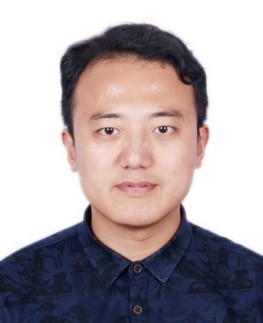
XING JUN, received a
Ph.D. degree in System
Engineering from Navy
University of
Engineering. He worked
as a member at Qingdao
Huanghai University. His
research interests
include Machine
Learning, Recommendation
System, Knowledge Graph,
Video Analysing
Technology, and
Intelligent Education.
He participated in PLA
Innovative Research
Project of of Exploring
a Generation, Colleges
and Universities Youth
and Innovation Talent
Recruitment Plan
Construction Team
Project of Shandong
Province, Basic Capacity
Construction Project of
Private Colleges and
Universities of Shandong
Province. Based on these
projects, he published
many academic papers.
Email:fumulan_cn@163.com
Dr.
LUO FEI
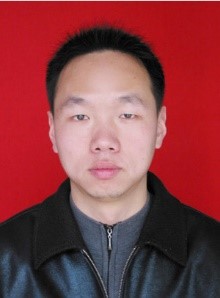
LUO FEI, received a
Ph.D. degree in Computer
Science and Technology
from Huazhong University
of Science and
Technology. He worked as
associate professor at
East China University of
Science and Technology.
His research interests
include cognitive
computing, cloud
computing and things of
internet.
He presided over the
National Natural Science
Foundation of China and
the China Postdoctoral
Foundation. Based on
these projects, he
published 22 academic
papers, and more than
ten papers was indexed
by SCI and EI among
them. Besides, he gained
six national invention
patents and one software
copyright.
Dr.
Li Chunguo
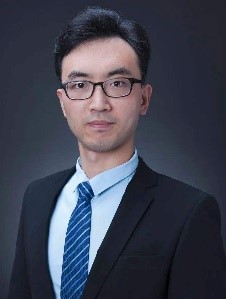
Li Chunguo, received the
Ph.D. degree in wireless
communications from
Southeast University. He
joined the Faculty of
Southeast University,
Nanjing China, where he
is currently an Advisor
of Ph.D candidates and
Full Professor. From
June 2012 to June 2013,
he was the Post-Doctoral
researcher with
Concordia University,
Montreal, Canada. From
July 2013 to August
2014, he was with the
DSL laboratory of
Stanford University as
visiting associate
professor. From August
2017 to July 2019, he
was the adjunct
professor of Xizang
Minzu University under
the supporting Tibet
program organized by
China National Human
Resources Ministry.
He is an IET Fellow and
IEEE CIS Nanjing Chapter
Chair. He are serving a
couple of international
journals such as IET
Communications and has
organized many
international conference
sessions/workshops. His
research interests are
in big data in wireless
communications,
artificial intelligence
for cyberspace security,
and machine learning
based image/video signal
processing.
Points of Focus:
personalized
recommendation
optimization of recommendation algorithm
design of recommendation system
application of nudge theory in recommendation system
application of recommendation in industry scenes
test method of recommendation system
design of cognitive computing system
modeling analysis of cognitive computing
man-machine interaction based on recommendation or cognitive system
development of recommendation or cognitive system
comprehensive application of theories and technologies in recommendation or cognitive system
data processing in recommendation or cognitive system
robustness, security of algorithms or system
optimization of recommendation algorithm
design of recommendation system
application of nudge theory in recommendation system
application of recommendation in industry scenes
test method of recommendation system
design of cognitive computing system
modeling analysis of cognitive computing
man-machine interaction based on recommendation or cognitive system
development of recommendation or cognitive system
comprehensive application of theories and technologies in recommendation or cognitive system
data processing in recommendation or cognitive system
robustness, security of algorithms or system
Title
:
Intelligent Data
Engineering for
Society, Urban and
Real-world
Application
Summary:
With the development of
urbanization, social
APPs, intelligent
terminals and various
location sensors, more
and more real-world
high-dimensional
heterogeneous data
begins to emerge. To
better discover complex
patterns and knowledge
from these massive data,
intelligent data
engineering for data
processing, awareness
and decision-making is a
crucial part in
real-world artificial
intelligence. Some
high-dimensional
heterogeneous data in
real-world, for example,
urban mobility data and
social network data,
have highly complex and
nonlinear
characteristics, so that
traditional machine
learning methods are
difficult to accurately
capture their dynamics.
Preprocessing, modeling
and designing reasonable
machine learning models
for these complex
real-world data are
long-term challenges in
intelligent data
engineering.
The aim of this workshop
is to bring together the
research accomplishments
provided by researchers
from academia and the
industry. The other goal
is to show the latest
research results in the
field of intelligent
data engineering for
society, urban and other
real-world applications.
We encourage prospective
authors to submit
related distinguished
research papers on the
subjects of
spatiotemporal data
mining, social network,
intelligent
transportation, urban
computing and real-world
machine learning. Please
name the title of the
submission email with
“paper title- workshop
title”.
Keywords:
Intelligent data
engineering, Artificial
intelligence, Urban
computing, Real-world
Machine learning
Chair
:
Dr.
Guangyin Jin

Guangyin Jin, is a PhD
student in Systems
Engineering College from
National University of
Defense Technology. He
worked as a member at
the Intelligent System
Engineering Group. His
research interests
include Spatiotemporal
Data Mining, Urban
Computing, Graph Neural
Network and Real-world
Machine Learning.
He participated in the
National Natural Science
Foundation, National Key
Projects, National Key
Research and Military
Pre-research Projects.
Based on these projects,
he has published many
articles in
authoritative
international journals
and conferences, for
instance, KBS, TRC, IEEE
ICBD and ACM SIGKDD.
Dr.
Chenxi Liu
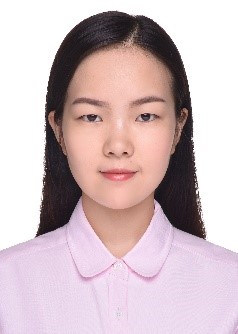
Chenxi Liu is a Ph.D.
student in Computer
Science College from
Hunan University. Her
research interests
include Intelligent
Transportation Systems,
Trajectory Big Data
Mining, Urban Computing,
and Graph Neural
Networks.
She participated in the
National Natural Science
Foundation of China, the
Key R & D Project of
Hunan Province of China,
and the Open Fund of
State Key Laboratory of
GeoInformation
Engineering. She is the
PC member of PRCV
(Chinese Conference on
Pattern Recognition and
Computer Vision).
Title
:
Application of
Intelligent
Computing in Ecology
Summary:
As an essential means of
industrial innovation,
artificial intelligence
technology represented
by the Internet of
Things, big data, and
cloud computing is an
inevitable trend that is
applied in the
ecological field. We
encourage prospective
authors to submit
related distinguished
research papers on the 2
subjects: theoretical
approaches and practical
case reviews. Please
name the title of the
submission email with
“paper title_workshop
title”.
Keywords:
Intelligent computing;
Ecological protection;
Ecological mechanism
revealed
Chairs
:
Prof.
Kunrong Hu
,
School of Southwest
Forestry
University
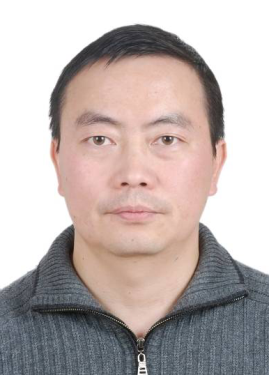
Kunrong Hu, Associate
professor, Master of
Forest Management, head
of Department of Data
Science and Engineering.
He is mainly engaged in
the application research
of technologies such as
Internet of Things, big
data, "3S" technology
and machine learning in
forest management
science, forest
ecological monitoring,
and forest biodiversity
protection, providing
integrated innovation
solutions and studying
the principles and
methods of integrated
innovation.
Prof.
Yongke Sun
,
School of Southwest
Forestry
University
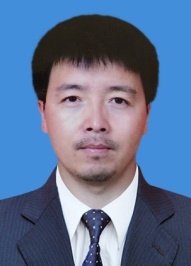
He was born in Xianyang,
Shanxi, China in 1980,
received the M.S. degree
from Yunnan University,
in 2012. He is recently
pursuing the Ph.D.
degree of Southwest
Forestry University. His
research interests
include big data,
network security and
computer-aided wood
identification.
Prof.
Youjie Zhao
,
received his Master
degree from Yangzhou
University
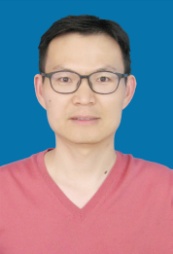
Youjie Zhao, received
his Master degree from
Yangzhou University,
Yangzhou, China, in
2007. He is an Associate
Professor in the School
of Big Data and
Intelligent Engineering,
Southwest Forestry
University, Kunming,
China. He has authored
or coauthored more than
20 peer-reviewed
research papers index by
SCI. His research
interests include
bioinformatics and big
data.
Prof.
Yong Cao
,
got Ph.D degree from
University of Electronic
Science and Technology
of China on computer
application technology
in 2010.

Yong Cao (ORCID:
0000-0002-9545-8203) got
Ph.D degree from
University of Electronic
Science and Technology
of China on computer
application technology
in 2010. He has been
working as an associate
professor at Big Data
and Intelligence College
in Southwest Forestry
University since 2011.
His main research
interests include
complex networks,
machine learning,
bioinformatics,
computer-aided wood
identification,
nonlinear science and
software engineering.
He is a co-founder of International Engineering and Technology Institute (IETI) and an expert in the field of computer science.
He is a co-founder of International Engineering and Technology Institute (IETI) and an expert in the field of computer science.
Title
:
Intelligent
communication
technologies, and
cyberspace
governance in the
dynamics of societal
systems
Summary:
In recent two decades,
China has become a
factor cyberspace power,
with the world’s largest
population of Internet
users and e-commerce
transactions.
Particularly after Xi
Jinping took office in
2012, China’s
involvement in global
governance has increased
significantly.three
Therefore, in the opaque
and volatile domain of
cyberspace, it is
essential to keep lines
of diversified
discussions open to
constructively and
proactively find areas
where we multi-laterally
have shared
interests.
Cyberspace can be characterized into three layers – the infrastructure, the application, and the cores. At different levels, cyberspace shall be treated distinctively and require different understanding between each actor, which differs at each level. As a comprehensive workshop discussion, there are following topics over cyber sovereignty that are worth looking into:
• The application of intelligence under the new generation communication technology
• City personality evaluation based on SNS
• Trust transitivity in complex networks
• Cyberspace narratives for global interconnectivity based on content analysis
Cyberspace can be characterized into three layers – the infrastructure, the application, and the cores. At different levels, cyberspace shall be treated distinctively and require different understanding between each actor, which differs at each level. As a comprehensive workshop discussion, there are following topics over cyber sovereignty that are worth looking into:
• The application of intelligence under the new generation communication technology
• City personality evaluation based on SNS
• Trust transitivity in complex networks
• Cyberspace narratives for global interconnectivity based on content analysis
Keywords:
Communication,
cyberspace governance,
societal
Systems,trusttransitivity,application
of intelligence, global
interconnectivity
Chairs
:
Prof.
Jing Wei Piao

Jing Wei Piao, received
her PhD in Media and
Communication Studies at
Westminster University,
Master of Arts in
International Journalism
of Cardiff University,
and Bachelor of
Economics and Finance at
the University of Hong
Kong.
She works at Department
of TV and Film, Xiamen
University of
Technology. She
published articles and
co-authored a book at
the global conferences
such as ICA and IAMCR,
in the fields of
narratology, media
studies, global
governance, and critical
discourse analysis.
Her research fields
include global
communication, narrative
construction, and media
convergence, which
especially tackle how
the mechanism of
recommendation algorithm
articulate media content
and reshape the social
cognition.
Prof. Yin
Jin
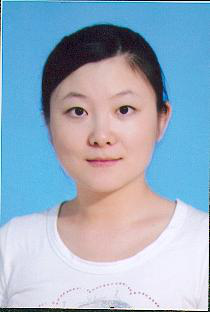
Yin Jin, received a Ph.D
degree in Management
Science and Engineering
from Dalian University
of Technology. She was a
lectrurer in Xiamen
University of
Technology. Her research
interests include trust
transitivity model,
multi-source data fusion
and intuitionistic fuzzy
set decision making
theory.
Her research appeared in several conferences such as INFORMS Annual Meeting, International Conference on Innovative Computing, Information and Control. Her work also published in several journals, such as Icic Express Letters, Journal of Enterprise Information Management, Journal of Management Science and so on.
Her research appeared in several conferences such as INFORMS Annual Meeting, International Conference on Innovative Computing, Information and Control. Her work also published in several journals, such as Icic Express Letters, Journal of Enterprise Information Management, Journal of Management Science and so on.
Prof.
Yan Cong Su
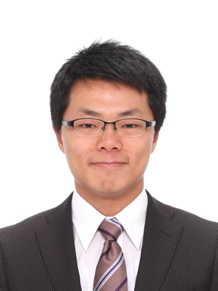
Yan Cong Su was born in
Fujian, China PRC in
1987. He received two
B.A. degrees in Japanese
including Media Studies
form the double degree
program between
Northeast Electric Power
University and Yamanashi
Eiwa University in 2009,
and his M.A. degree and
Ph.D. degree in
Computers and
Communication from Kobe
University in 2011 and
2014.
He workedas an outside lecturer at the Faculty of Media and Arts in Otemae University and the Faculty of Home Economics in Kobe Women's University from 2013 to 2014. He was employed as a full-time lecturerXiamen University of Technology in August 2014, now, he is the head of Digital Media Technology course in School of Digital Arts and Communication. His research interests include soft computing, multimedia signal processing and human computer interaction.
He workedas an outside lecturer at the Faculty of Media and Arts in Otemae University and the Faculty of Home Economics in Kobe Women's University from 2013 to 2014. He was employed as a full-time lecturerXiamen University of Technology in August 2014, now, he is the head of Digital Media Technology course in School of Digital Arts and Communication. His research interests include soft computing, multimedia signal processing and human computer interaction.
Prof.
Jian Xun Li
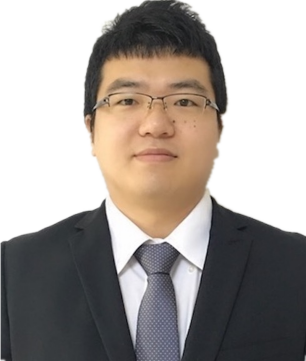
Jian Xun li, who
obtained
Ph.D. degree in
Engineering from Dept.
of System Solution
Engineering in
University of Yamanashi,
Japan. He worked as a
customer behavior
prediction engine
development engineer at
SONY COMPUTER SMN in
Japan. Now, He is a
lecturer of Digital
Media Art in Xiamen
University of
Technology. His research
fields include
optimization theory and
algorithm, big data
analysis and processing,
and their application
inhuman-computer
interaction.
He has published articles and co-authored a book targeting at the global conferences such as ICICE and SSAP across the world. He also serves as a reviewer for several societies.
He has published articles and co-authored a book targeting at the global conferences such as ICICE and SSAP across the world. He also serves as a reviewer for several societies.
Title
:
Deep Learning
Methods and
Applications in
Image Understanding
Summary:
The development of cloud
Benefitting from the
rapid development of
social media and smart
phones, plenty of web
images are produced on
the Internet, and the
imperious demands of
images automatic
analysis make image
understanding a hot
research topic. Deep
learning-based
approaches have led to a
rapid progress being
made in the field of
image
understanding,which
leads to dramatically
improved solutions of
many challenging
problems such as image
classification, object
detection and
recognition. However,
there are clear
limitations. For
example, successes have
largely been made in
areas where vast
quantities of data can
be collected or
simulated, and where
huge compute resources
are available. It
excludes many
applications where data
is intrinsically rare or
expensive, or compute
resources are
unavailable. This
special workshop aims to
introduce and discuss
the improved algorithms
of image understanding
and the new application
of image understanding.
We encourage prospective
authors to submit
related distinguished
research papers on the
subjects of image
classification, image
segmentation, object
detection and
recognition, object
tracking, activity
recognition and other
applications of image
understanding. Please
name the title of the
submission email with
“paper title- workshop
title”.
Keywords:
Image Understanding,
Deep Learning, Neural
Network; Algorithms and
Applications of Image
Processing.
Chairs
:
Prof.
Rongruan Chen
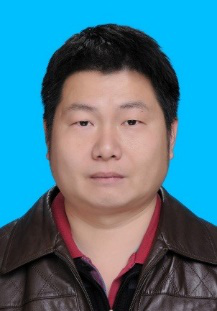
He received the Ph.D.
degree in photogrammetry
and remote sensing from
Wuhan University, China,
in 2010. He is currently
a professor in the
School of Computer and
Information Engineering,
Hunan University of
Technology and Business.
He is a young backbone
teacher in Hunan
Province and a Hunan
Province 121 Innovative
Talents. He presided one
national natural science
foundation project and
six provincial
scientific research
projects, published more
than 20 papers, gained
two national invention
patents and six software
copyrights. His current
research interests
include artificial
intelligence and image
processing.
Dr.
Shaonian Huang
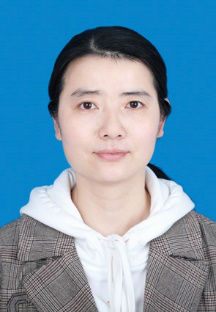
She received the B.S.
degree in computer
science from Hunan
Normal University,
China, in 2000, and the
M.S. and Ph.D. degrees
in computer science from
Central South
University, China, in
2006 and 2018,
respectively. She is
currently an Associate
Professor with the
School of Computer and
Information Engineering,
Hunan University of
Technology and Business,
China. Her current
research interests
include computer vision,
machine learning, and
crowd behavior analysis
and modeling.
Title
:
Intelligence and
Software System
Summary:
The development of cloud
computing, Internet of
Things, big data and
other fields requires
more to software. And
the bigprogress of
artificial intelligence
has made the tendency of
the integration of
artificial intelligence
and related fields more
obvious. Intelligence
and software systems are
a space for discussion
that focuses on the
development of
artificial intelligence
and software
engineering.
With the development of computing power, the accumulation of data, and the improvement of algorithms, intelligence may become the basic attribute of software systems. The application scenarios of intelligent software are becoming more, includingintelligent medical treatment, intelligent driving, robots, etc. How to use various new technologies to intelligently connects the information space and the human/machine/object/environment/information in the physical space and provides intelligent resources and intelligent capabilities anytime, anywhere on-demand services, whichisa new challengeto intelligence and software systems.
The purpose of this seminar is to gather the research results of academia and industry, and discuss about various aspects of intelligence and software systems, including: new technologies, new developments, and new directions of intelligent software engineering; research progress of engineering intelligent algorithms, Development direction; cross-research on intelligence and software systems, etc. At the same time, the seminar encourages authors to submit theoretical methods and practical cases of research papers on related topics.Please name the title of the submission email with “paper title_work-shop Of Intelligence and Software System”.
With the development of computing power, the accumulation of data, and the improvement of algorithms, intelligence may become the basic attribute of software systems. The application scenarios of intelligent software are becoming more, includingintelligent medical treatment, intelligent driving, robots, etc. How to use various new technologies to intelligently connects the information space and the human/machine/object/environment/information in the physical space and provides intelligent resources and intelligent capabilities anytime, anywhere on-demand services, whichisa new challengeto intelligence and software systems.
The purpose of this seminar is to gather the research results of academia and industry, and discuss about various aspects of intelligence and software systems, including: new technologies, new developments, and new directions of intelligent software engineering; research progress of engineering intelligent algorithms, Development direction; cross-research on intelligence and software systems, etc. At the same time, the seminar encourages authors to submit theoretical methods and practical cases of research papers on related topics.Please name the title of the submission email with “paper title_work-shop Of Intelligence and Software System”.
Keywords:
Artificial intelligence,
Software system,
Intelligent software
system
Chairs
:
Prof.
Jin Zhang
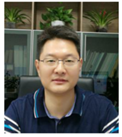
Jin Zhang is a professor
in Hunan Normal
University since 2014.
He is in charge of the
key lab of intelligent
software engineer of
hunan Normal University
since 2019. His research
interests include
software engineering,
data mining and
artificial intelligence.
Title
:
Emerging Trends of
Energy and Spectrum
Harvesting
Technologies
Summary:
Billions of low-end
wireless devices, such
as sensors, are
permeating into almost
every aspect of personal
life, such as vehicles,
washing machines,
air-conditioners, etc.
These miniaturized and
low-end devices are a
promising solution to
collect information and
assist users to
interactwith real-world
objects. Frost &
Sullivan reported that
the global market of
miniaturized devices
forecast the increase
from 1.4 billion to 3.26
billion from 2014 to
2024. Unfortunately, the
performance of
miniaturized devices,
which generally operate
with limited battery
power and transmit data
over an unlicensed
spectrum, is highly
deteriorated due to the
resource scarcity in
terms of energy and
spectrum. The energy
scarcity limits the
longevity of devices and
requires the operator to
manually replace the
depleted battery, which
results in considerable
maintenance costs. Even
with sufficient energy
supply, the data
transmission of devices
conflicts with other
networks that coexist in
the unlicensed spectrum
band, which creates the
spectrum scarcity issue.
To alleviate these
energy and spectrum
scarcity issues,
numerous energy and
spectrum harvesting
technologies emerge,
such as mini solar
panel, piezoelectric
transducers, and
cognitive radio. By
embedding these modules,
the devices can harvest
energy from the ambient
energy sources and
explore the idle
licensed spectrum for
data transmission.
The aim of this workshop is to bring together the research accomplishments provided by researchers from academia and the industry. The other goal is to show the latest research results in the field of energy and spectrum harvesting technology. We encourage prospective authors to submit related distinguished research papers on the subject of both: theoretical approaches and practical case reviews. Please name the title of the submission email with “paper title_workshp title”.
The aim of this workshop is to bring together the research accomplishments provided by researchers from academia and the industry. The other goal is to show the latest research results in the field of energy and spectrum harvesting technology. We encourage prospective authors to submit related distinguished research papers on the subject of both: theoretical approaches and practical case reviews. Please name the title of the submission email with “paper title_workshp title”.
Keywords:
Energy Harvesting,
Cognitive Radio,
Internet of Things
Chairs
:
Prof.
Deyu Zhang
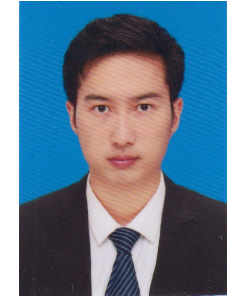
Deyu Zhang (S’15–M’17)
received the B.Sc.
degree in communication
engineering from PLA
Information Engineering
University, Zhengzhou,
China, in 2005, the
M.Sc. degree in
communication
engineering from Central
South University,
Changsha, China, in
2012, and the Ph.D.
degree in computer
science from Central
South University. From
2014 to 2016, he was a
visiting scholar in the
Department of Electrical
and Computer
Engineering, University
of Waterloo, ON, Canada.
He is an associate
professor in the School
of Computer Science and
Engineering Central
South University. His
current research
interests include
stochastic resource
allocation in wireless
sensor networks and
cloud radio access
networks, edge
computing, and
transparent computing.
Title
:
Big DataManagement
and Analysis Models
Building
Summary:
In the era of the
Internet, the scale of
data we handle has grown
to the level of TB or
even Pb. With the
continuous growth of
data scale, the types of
data generated by
applications are more
abundant than before.
Therefore, capturing,
storing, searching,
sharing, analyzing and
visualizing data are
challenging
traditionally relational
databases. The
increasing IT companies
are trying to use NoSQL
(not only SQL) database
to deal with the
challenges brought by
big data, such as
Cassandra or HBase, and
adopting distributed
computer systems, such
as Hadoop. NoSQL
database is a typical
key values schema
storage that is
non-relational,
distributed, and
horizontally extended
and schema free.
Traditional data
modeling focuses on
solving complex
relationship problems in
planning mode. However,
these considerations do
not apply to
non-relational, schema
free databases.
Therefore, the old data
modeling method is no
longer applicable. We
need a new methodology
to manage big data to
maximize the data
value.
The aim of this workshop is to bring together the research accomplishments provided by researchers from academia and the industry. The other goal is to show the latest research results in the field of big data management and analysis models building. We encourage prospective authors to submit related distinguished research papers on the subject of both: theoretical approaches and practical case reviews. Please name the title of the submission email with “paper title_workshop title”.
The aim of this workshop is to bring together the research accomplishments provided by researchers from academia and the industry. The other goal is to show the latest research results in the field of big data management and analysis models building. We encourage prospective authors to submit related distinguished research papers on the subject of both: theoretical approaches and practical case reviews. Please name the title of the submission email with “paper title_workshop title”.
Keywords:
big data management, big
data models, data
relations, Data Mining
Chairs
:
Prof.
Lin Li
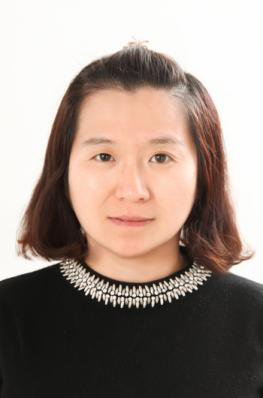
Education: Ph.D.
Professional title: Associate professor
Employer: College of Computer Science and Technology, Qingdao University
Main research direction: Big data management, Application of future network technology
Main lecture courses:computer network principle, network principle course design, computer system foundation, etc.
Work performance:presided over and participated in 6 industry university cooperation projects of the Ministry of education, 1 industry education joint fund of the Ministry of education, 2 provincial projects, 3 school-level projects, 4 innovation and entrepreneurship projects for college students, and published a textbook and several papers
Professional title: Associate professor
Employer: College of Computer Science and Technology, Qingdao University
Main research direction: Big data management, Application of future network technology
Main lecture courses:computer network principle, network principle course design, computer system foundation, etc.
Work performance:presided over and participated in 6 industry university cooperation projects of the Ministry of education, 1 industry education joint fund of the Ministry of education, 2 provincial projects, 3 school-level projects, 4 innovation and entrepreneurship projects for college students, and published a textbook and several papers
Dr.
Bin Jiang
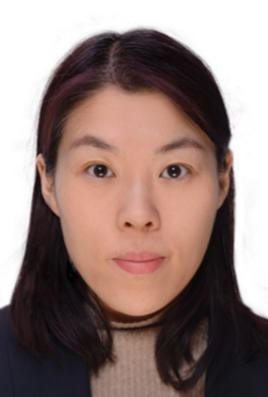
Education: M.S.
Employer: College of Computer Science and Technology, Qingdao University
Main research interests: Big data management and Analysis Models Building
Work performance: presided over and participated in 1 industry university cooperation projects of the Ministry of education, 1 provincial projects, 1 school level projects, 3 innovation and entrepreneurship projects for college students,and published several papers
Employer: College of Computer Science and Technology, Qingdao University
Main research interests: Big data management and Analysis Models Building
Work performance: presided over and participated in 1 industry university cooperation projects of the Ministry of education, 1 provincial projects, 1 school level projects, 3 innovation and entrepreneurship projects for college students,and published several papers
Title
:
Recent Advances of
Machine Learning
Research
Summary:
As a mean of solving
artificial intelligence
issue, machine learning
is transforming the
world. However, machine
learning research is
facing the increasing
challenges. Explosive
growth in data volume
requires coordinating
and utilizing numerous
GPU clusters to
accomplish the training
of machine learning
models and obtain good
convergence to achieve
relatively high
performance. Therefore,
how to train machine
learning models with
large-scale parameters
in massive data becomes
an important research
topic. Moreover, data is
an important resource
for machine learning, so
the lack of data can
seriously affect the
training models. Humans
are capable of learning
quickly from few
samples, and machine
learning is currently
done by analogy to human
intelligence, so how to
learn new skills and
abilities for tasks from
small amounts of labeled
data becomes another
important issue.
This workshop aims to present and discuss the latest research results of machine learning in artificial intelligence, especially for applications related to computer vision and natural language processing, and so on. Prospective authors are encouraged to submit outstanding research papers that cover novel theories, innovative methods, and meaningful applications of machine learning.
This workshop aims to present and discuss the latest research results of machine learning in artificial intelligence, especially for applications related to computer vision and natural language processing, and so on. Prospective authors are encouraged to submit outstanding research papers that cover novel theories, innovative methods, and meaningful applications of machine learning.
Keywords:
Machine Learning,
Artificial intelligence,
Machine Learning form
Massive data,
Few/One-shot Learning
Chairs
:
Dr.
Guan Yang
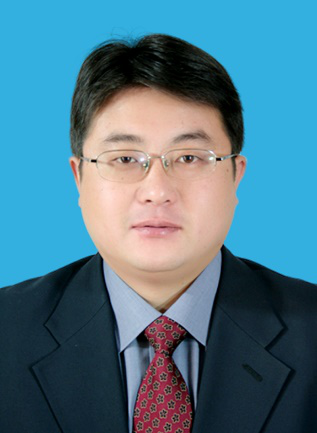
Dr. Guan Yang, received
a B.S. degree in
Probability Theory and
Mathematical Statistics
from the Northwest
University, Xi’an,
China, in 1997. He
successively received
his M.S. in Applied
Mathematics and Ph.D. in
Mathematics from Sun
Yat-sen University,
Guangzhou, China in 2005
and 2011. He is the vice
dean with the School of
Computer Science of
Zhongyuan University of
Technology, the member
of the Imaging Detection
and Perception
Professional Committee
and Big Visual Data
Professional Committee
of China Society of
Image and Graphics
(CSIG), the council
member of Henan Digital
Graphics and Image
Society. He also serves
as a reviewer, an
evaluation expert of
projects of the natural
science foundation and
an award reviewer of
science and technology
of several provinces,
and a reviewer of
several international
journals and
conferences. His
research interests
include Computer Vision,
Machine Learning, and
Medical Image
Analysis.
He chaired and participated in the national Natural Science Foundation Projects of China, Science and Technology Projects of Henan Province, etc. Based on these projects, he published many academic papers.
He chaired and participated in the national Natural Science Foundation Projects of China, Science and Technology Projects of Henan Province, etc. Based on these projects, he published many academic papers.
Title
:
Application of
Internet of Things
and Artificial
Intelligence in
Agriculture
Summary:
Agriculture is related
to people's livelihood,
the national stability
and the social
development. Studies
have pointed out that by
2050, the number of the
global population may be
up to 10 billion, and
the world’s food demand
will be double, but the
earth is still that big,
coupled with the global
warming, the consequent
lack of fresh water, and
many other conditions.
Can human beings feed
themselves? This is a
big problem. We should
rethink the way of
farming, upgrading and
transforming traditional
agriculture through the
Internet of Things, big
data, and artificial
intelligence, and
prescribe the right
medicine to solve the
pain points in
agricultural production
costs, agricultural
product safety,
environmental protection
balance, disease control
and prevention, and
upgrade modern
agriculture to a whole
new level. The level of
"precision" and
"quasi".
The other goal of the workshop is to show the latest research that results in the field of cybersecurity technology and understand how the governance strategy can influence it. We encourage prospective authors to submit related distinguished research papers on the subject of both: theoretical approaches and practical case reviews.
One of the aim of this workshop is to bring together the research achievements provided by researchers from academia and industry. Another the main goal is to show the latest research that results in the field of Internet of Things collection, sensor and fusion technology, data processing technology, and agricultural artificial intelligence, and to showcase the latest progress and application at home and abroad. We encourage authors to submit relevant outstanding research papers on the following two topics: theoretical methods and practical application cases
The other goal of the workshop is to show the latest research that results in the field of cybersecurity technology and understand how the governance strategy can influence it. We encourage prospective authors to submit related distinguished research papers on the subject of both: theoretical approaches and practical case reviews.
One of the aim of this workshop is to bring together the research achievements provided by researchers from academia and industry. Another the main goal is to show the latest research that results in the field of Internet of Things collection, sensor and fusion technology, data processing technology, and agricultural artificial intelligence, and to showcase the latest progress and application at home and abroad. We encourage authors to submit relevant outstanding research papers on the following two topics: theoretical methods and practical application cases
Keywords:
Agriculture, Sensor data
collection, Data fusion,
Agricultural artificial
intelligence,
Recognition algorithm
Chairs
:
Prof.
Tonghai Liu
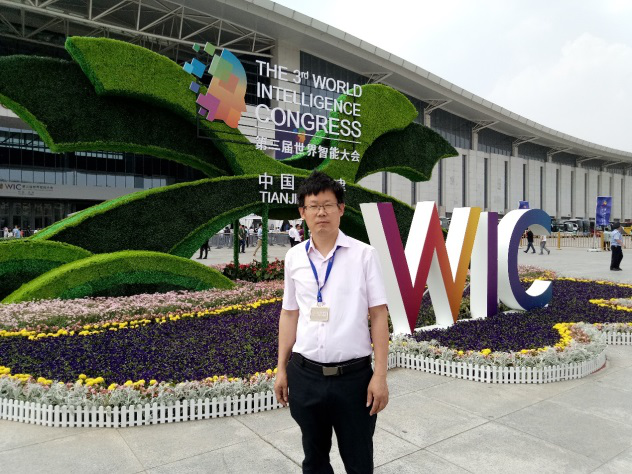
Tonghai Liu got his
Ph.D. degree in
Engineering from China
Agricultural University.
He is a computer
professor, a master
tutor, a visiting
scholar at Aarhus
University in Denmark,
who selected as talent
of Tianjin University
"Outstanding Young
Teacher Funding
Program", the
commissioner of Tianjin
Outstanding Science and
Technology, the director
of Information Branch of
China Animal Husbandry
Association, the member
of the Youth Working
Committee of the Chinese
Society of Artificial
Intelligence, the member
of the Chinese Society
of Agricultural
Engineering. Now, he
works as the head of the
Tianjin Agricultural
Internet of Things
Equipment and
Technology, Science,
Education and
Agriculture Integrated
Innovation Demonstration
and Training Base, and
the leader/backbone
member of the
agricultural engineering
discipline. The main
areas of his researches
are focused on: 3S
technology application,
computer vision,
Internet of Things and
artificial
intelligence.
In recent years, he presided over the major sub-projects of the national public welfare industry (environmental protection)scientific research, the national spark plan project, the national foreign expert bureau project, the Tianjin key research and development plan science and technology support key project, and the Tianjin agricultural science and technology achievement transformation project. He is the commissioner of the Tianjin science and technology and involved in 12 scientific research projects, such as special projects and agricultural Internet of Things regional trial projects. He mainly participate in more than ten scientific research projects, such as the National Natural Science Foundation of China. He, who is a reviewer of Journal of Agricultural Machinery, published 42 academic papers, edited 2 textbooks,owns 8 patents and 8 software copyrights and won 2 second prizes of Tianjin Science and Technology Progress Award.
In recent years, he presided over the major sub-projects of the national public welfare industry (environmental protection)scientific research, the national spark plan project, the national foreign expert bureau project, the Tianjin key research and development plan science and technology support key project, and the Tianjin agricultural science and technology achievement transformation project. He is the commissioner of the Tianjin science and technology and involved in 12 scientific research projects, such as special projects and agricultural Internet of Things regional trial projects. He mainly participate in more than ten scientific research projects, such as the National Natural Science Foundation of China. He, who is a reviewer of Journal of Agricultural Machinery, published 42 academic papers, edited 2 textbooks,owns 8 patents and 8 software copyrights and won 2 second prizes of Tianjin Science and Technology Progress Award.
Title
:
Internet of Things
and Artificial
Intelligence
Summary:
In recent years,
artificial intelligence
has made remarkable
progress, meanwhile the
Internet of things (IOT)
has achieved greater
development. Internet
ofThings (IOT) is
responsible for
collecting data, and
artificial intelligence
and helpsus deal with
data processing.
Applications in the
Internet of Things are
even more extensive.
Smart industry, smart
agriculture, smart
cities, and smart
health-care are all
combined with big data,
cloud computing and
artificial intelligence.
The future of the
Internet of Things is
artificial intelligence.
The powerful combination
of the Internet of
Things and artificial
intelligence will bring
great changes.
The aim of this workshop is to bring together the research accomplishments provided by researchers from academia and the industry, and present the latest research findings in related areas such as vulnerability mining, privacy protection, object detection, and etc. The workshop will discuss how to make appropriate theories and methods applied for vulnerability mining of internet of things, privacy protection infederated learning, object detection with artificial intelligence,etc. Authors are encouraged to submit research papers on theoretical approaches and practical applications, and the title of the submitted email should be named as "Paper titleworkshop Title".
The aim of this workshop is to bring together the research accomplishments provided by researchers from academia and the industry, and present the latest research findings in related areas such as vulnerability mining, privacy protection, object detection, and etc. The workshop will discuss how to make appropriate theories and methods applied for vulnerability mining of internet of things, privacy protection infederated learning, object detection with artificial intelligence,etc. Authors are encouraged to submit research papers on theoretical approaches and practical applications, and the title of the submitted email should be named as "Paper titleworkshop Title".
Keywords:
Application of
artificial intelligence;
Internet of things;
Security;Vulnerability;
Object detection; Data
analysis
Chairs
:
Dr.
Jun Ye
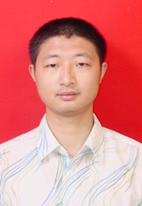
Dr. Jun Ye, from Hainan
University, is a
high-level talent of
Hainan Province
whoreceived his B.S.
degree in Applied
Mathematics at Chongqing
University, Chongqing,
China in 2003 and the
M.S. degree in
Cryptography at Guilin
University of Electronic
Technology, Guilin,
China in 2011 and the
Ph.D. degree in Xidian
University, Xi’an,
China, in 2017.
He published two books and over20 articles and he owns six patents. His research interests include Cryptography, Information Security, Cloud Computing, and Privacy Preserving.
He published two books and over20 articles and he owns six patents. His research interests include Cryptography, Information Security, Cloud Computing, and Privacy Preserving.
Title
:
Experience Enhanced
Intelligence to IoT
Summary:
The Internet of Things
(IoT) has gained
significant attention
from industry as well as
academia during the past
decade. The main reason
behind this interest is
the capabilities of the
IoT for seamlessly
integrating classical
networks and networked
objects, and hence
allows people to create
an intelligent
environment based on
this powerful
integration. However,
how to extract useful
information from data
past produced by IoT,
then transform such
information into
knowledge and facilitate
standard knowledge reuse
among different Things,
are still open issues to
be addressed.
The Experience Enhanced Intelligence to IoT workshop is devoted to the experience-based methods addressing knowledge acquisition, representation, inference, and reusing problems and their application to IoT. We want to offer an opportunity for researchers and practitioners to identify new promising research directions as well as to publish recent advances in this area. The scope of this workshop includes, but is not limited to the following topics:
• Theoretical framework for experience-based knowledge representation methods
• Experience-based knowledge extraction algorithms for IoT
• Dealing with Big Data and small data sets
• Subsampling and feature selection in multiple model machine learning
• Diversity, accuracy, interpretability, and stability issues
• IoT-oriented methods in prediction and classification
• Reusing, evolving, and online learning for IoT
• Inference and reasoning using experience-based methods
• Implementations of experience-based learning algorithms for IoT
• Applications of intelligent IoT methods in medicine, security, industry, engineering, etc.
Please name the titile of the submission email with:
“paper title_ Experience Enhanced Intelligence to IoT”
The Experience Enhanced Intelligence to IoT workshop is devoted to the experience-based methods addressing knowledge acquisition, representation, inference, and reusing problems and their application to IoT. We want to offer an opportunity for researchers and practitioners to identify new promising research directions as well as to publish recent advances in this area. The scope of this workshop includes, but is not limited to the following topics:
• Theoretical framework for experience-based knowledge representation methods
• Experience-based knowledge extraction algorithms for IoT
• Dealing with Big Data and small data sets
• Subsampling and feature selection in multiple model machine learning
• Diversity, accuracy, interpretability, and stability issues
• IoT-oriented methods in prediction and classification
• Reusing, evolving, and online learning for IoT
• Inference and reasoning using experience-based methods
• Implementations of experience-based learning algorithms for IoT
• Applications of intelligent IoT methods in medicine, security, industry, engineering, etc.
Please name the titile of the submission email with:
“paper title_ Experience Enhanced Intelligence to IoT”
Keywords:
Internet of Things;
machine learning;
experience-based
knowledge extraction;
signal processing;
Intelligent information
systems; data mining
Chairs
:
Prof.
Haoxi Zhang
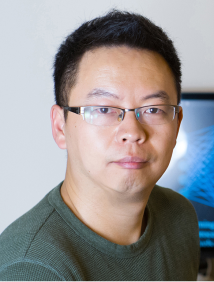
He is an Associate
Professor from the
Chengdu University of
Information Technology,
Chengdu, China. He
received his Ph.D.
degree in Knowledge
Engineering from the
University of Newcastle
in 2013, and the
master’s degree in
Software Engineering
from the University of
Electronic Science and
Technology of China. His
research interests focus
on experience-oriented
intelligent systems,
knowledge engineering,
Internet of Things, and
Deep Learning. He has
published more than 30
reputed journal and
conference papers.
Dr.
Jian Luo
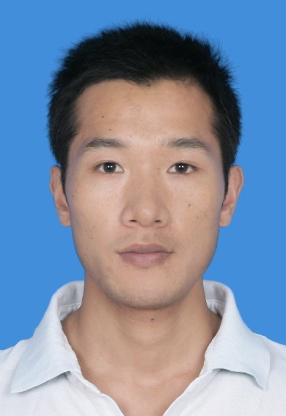
Jian Luo, is a teacher
of the Computer
Institute of Wuhan Qing
Chuan University,
innovation and
entrepreneurship mentor
and a senior
engineer.His research
directions: Software
Engineering, and
Information Technology in Education.
In recent years, he has
edited 5 teaching
materials, successfully
applied for 4 software
copyrights and published
5 papers.
SCI Indexed Journals
Journal of Healthcare Engineering
Wireless Communications and Mobile Computing
Security and Communication Networks
Tropical Conservation Science
Mobile Information Systems
Journal of Advanced Transportation
